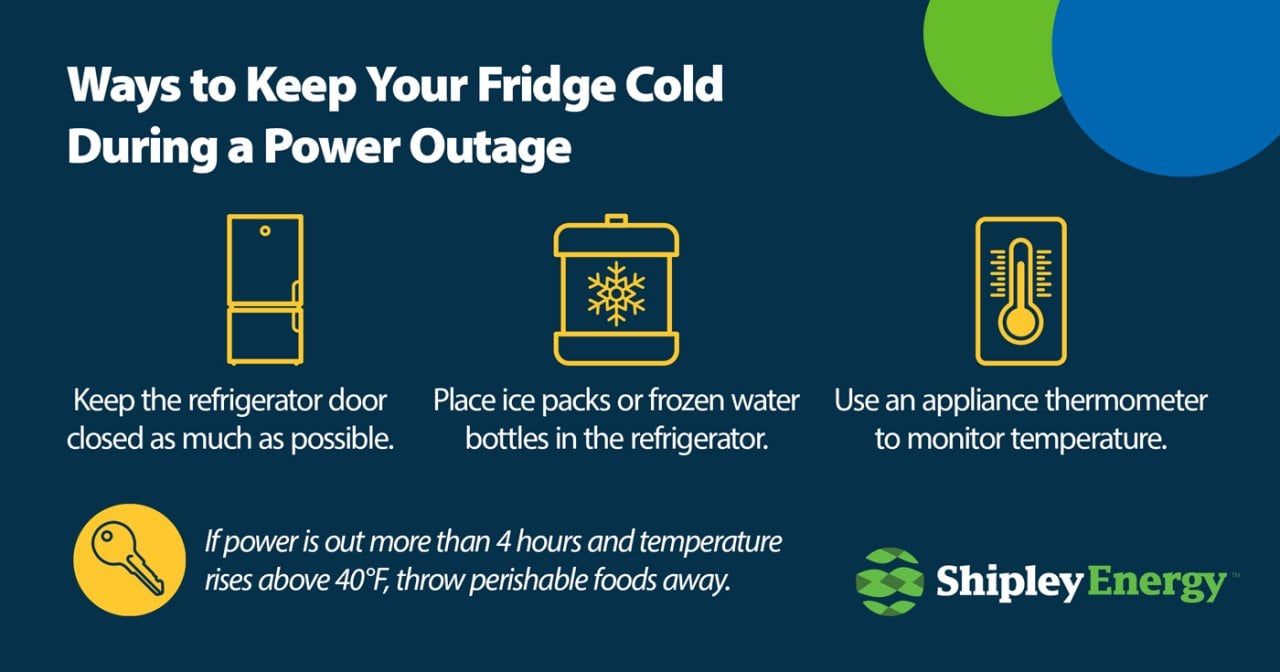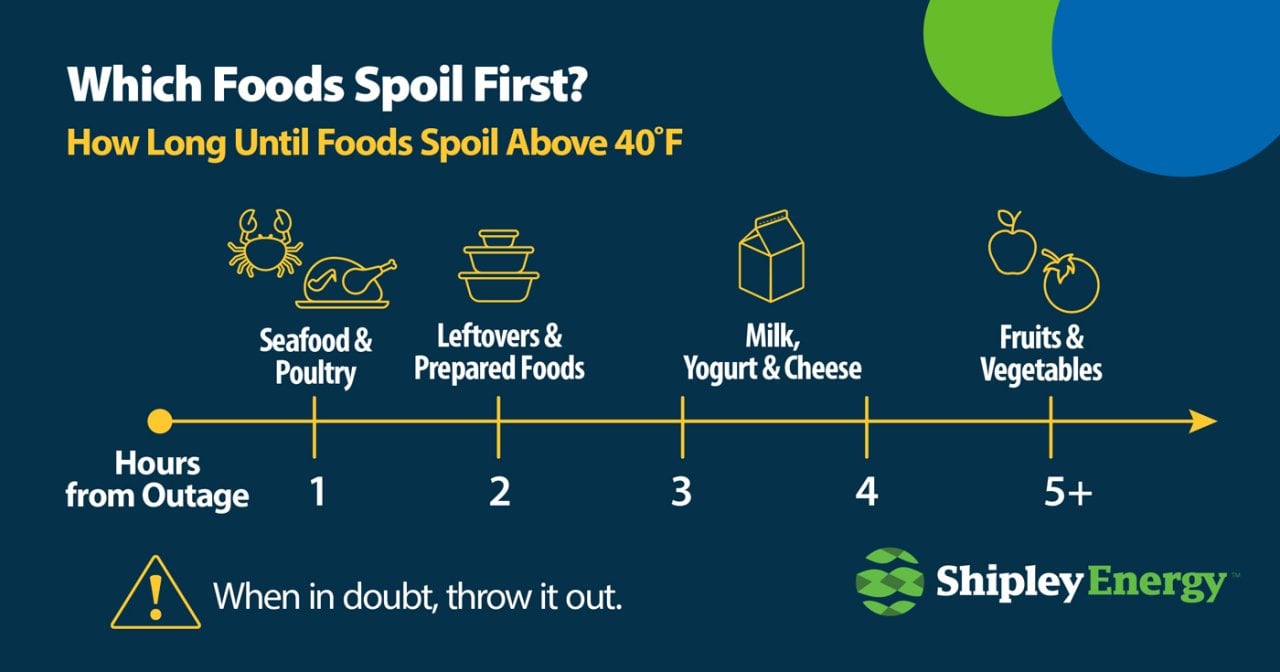How to safely handle food and medicine in a power outage
Lifestyle

Audio By Carbonatix
9:30 AM on Wednesday, October 1
By Lucas Winter for Shipley Energy, Stacker
How to safely handle food and medicine in a power outage
When the power goes out, it’s not just the lights that go off—it’s your fridge, freezer, and the safety of your perishable items that come into question. Whether you’re dealing with a summer thunderstorm, winter ice event, or grid failure, knowing how long food and medicine stay safe can help you avoid illness, reduce waste, and protect your household.
In this guide, Shipley Energy breaks down Food and Drug Administration and the Department of Agriculture studies about how long refrigerators and freezers can keep items cold, how quickly meat starts to thaw, when insulin becomes unsafe, and then we’ll help you know what you can do to stay prepared.
How Long Can a Refrigerator Stay Cold Without Power?
Your refrigerator can keep food cold for up to 4 hours—as long as you keep the door closed. Once the interior temperature rises above 40°F, bacteria can grow quickly, making many items unsafe to eat.
Surveys show that the typical American household keeps between $250 and $500 worth of food in their refrigerator and freezer at any given time. Refrigerated medication can easily cost hundreds or thousands of dollars to replace if it expires before power is restored.
Tips to extend cooling time:
- Keep the fridge door closed as much as possible.
- Place ice packs or frozen water bottles in the fridge during an outage.
- Use an appliance thermometer to monitor temperature.
Key takeaway: If power is out for more than 4 hours and the temperature rises above 40°F, most perishable foods should be thrown away.

Perishable Foods: What Spoils First?
Foods that spoil quickly at room temperature include:
- Dairy (milk, yogurt, soft cheeses): Spoils in 2–4 hours above 40°F
- Seafood and poultry: Especially high-risk for bacterial growth
- Leftovers and prepared meals: Unsafe after 2 hours above 40°F
- Fruits and vegetables: Most are safe longer, but leafy greens wilt quickly
Warning signs: sour smells, color changes, slimy texture—but remember, you can’t always see or smell spoilage. When in doubt, throw it out.
How to Tell If Food Is Still Safe
To determine if food is safe during or after an outage:
- Use appliance thermometers in your fridge and freezer.
- Check that the fridge stayed below 40°F and the freezer stayed below 0°F.
- Look for signs of refreezing like ice crystals or firmness.
- Avoid tasting food to check for spoilage—bacteria can be present without noticeable changes.
Freezer Safety: When Does Meat Start to Thaw?
A freezer’s insulation gives you a bigger window of time. Here’s how long food will typically stay frozen:
- Full freezer: up to 48 hours unopened
- Half-full freezer: around 24 hours
Meat will begin to thaw once temperatures climb above 32°F and should be cooked or discarded if it rises above 40°F for more than 2 hours.
Pro Tip: Group frozen items together to help them stay colder longer.

How Quickly Does Insulin Go Bad Without Refrigeration?
Insulin is temperature-sensitive, and its effectiveness can degrade if not stored properly. According to the FDA most insulin types in their original packaging are safe for 28 days at room temperature, but this varies by brand and formulation.
Important considerations:
- Do not freeze insulin—this can destroy its effectiveness.
- Store in a cooler with an ice pack during outages.
- Check the manufacturer’s guidelines for specific temperature tolerances.
If you rely on insulin or other temperature-sensitive medications, it’s smart to invest in a backup power source or a portable medical cooler.
Preventing Spoilage: Prep Tips Before a Storm
You can’t always predict when a power outage will hit, but a little preparation goes a long way:
- Freeze containers of water to create makeshift ice packs.
- Group frozen food together to retain cold longer.
- Keep a cooler handy for medications or essential items.
- Make a fridge inventory so you’re not opening doors to check.
- Have a backup plan—including where to go or how to store food and insulin safely.
Why a Generator Is a Game-Changer for Food and Medicine Safety
A standby or portable generator can keep your fridge, freezer, and medical devices running through the worst outages. That means:
- No tossing hundreds of dollars in spoiled food
- No risking medication effectiveness
- No stress during storms or extreme weather events
If outages are common in your area, investing in a generator can protect your family’s health and reduce costly waste.
Final Thoughts: Stay Safe, Stay Prepared
Knowing how long food and medications remain safe during a power outage is essential for protecting your health. Remember:
- Refrigerators stay cold up to 4 hours
- Freezers can last 24–48 hours
- Insulin typically lasts 28 days at room temp (but not during high heat)
- Most perishables are unsafe above 40°F for more than 2 hours
This story was produced by Shipley Energy and reviewed and distributed by Stacker.

























